ISLAMABAD: Imran Khan, the cricket legend turned politician, was removed as prime minister of Pakistan early on Sunday after losing a no-confidence vote in the National Assembly, bringing to a close a weeks-long campaign by a joint opposition to topple his government over accusations of poor governance and mismanagement of the economy.
Elected in 2018, the cricketing star-turned-politician was until not long ago seen as likely to defy the odds to become the only Pakistani prime minister to serve a full five-year term.
But after two coalition partners of Khan’s party abandoned him last week, the opposition finally had the votes needed to oust him from office.
Here is a timeline of key events in his political career:
Khan became a national hero by leading Pakistan’s team to a Cricket World Cup victory in 1992, after which he retired from cricket and entered politics, turning into an outspoken critic of government corruption.
1996: Pakistan Tehreek-e-Insaf
Khan founded his own political party, Pakistan Tehreek-e-Insaf (PTI), in 1996. In national elections held one year later, the PTI won less than 1 percent of the vote and failed to win any seats in parliament. It fared slightly better in the 2002 elections, winning a single seat that Khan filled.
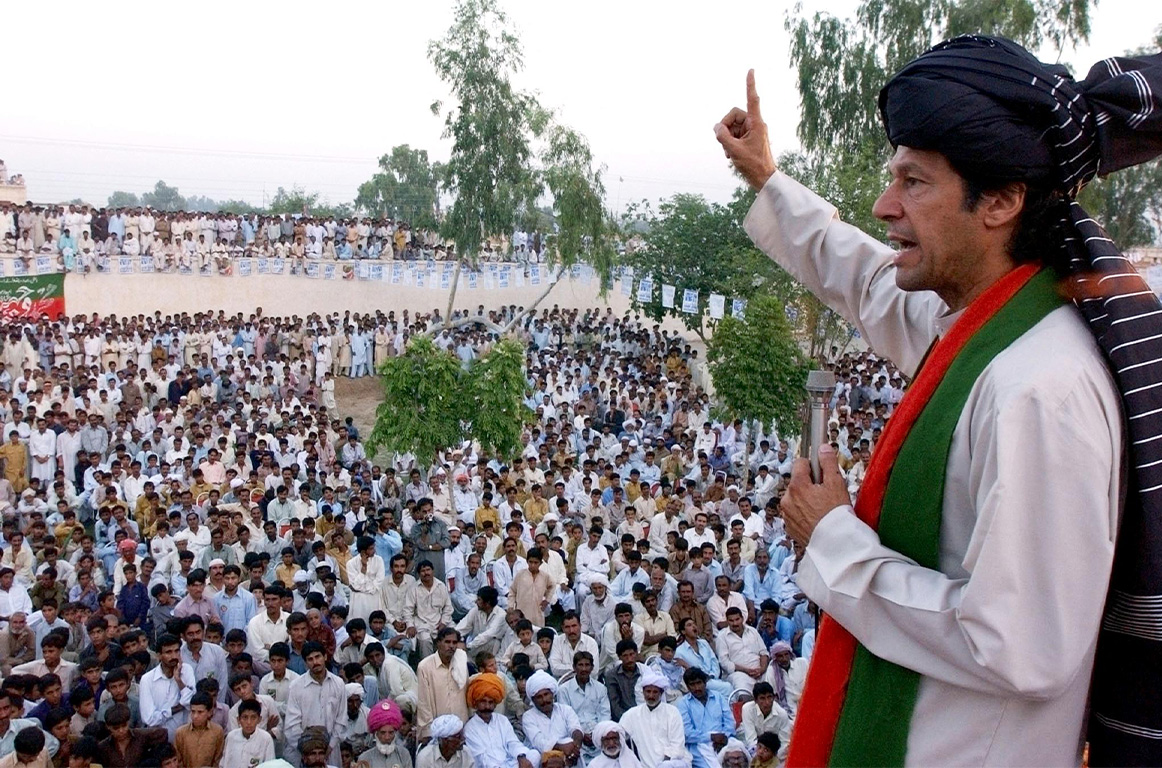
In this file photo, Pakistani Prime Minister and former cricket star Imran Khan address a big election rally in his hometown Essa Kheel, 03 October 2002. (AFP/FILE)
In 2007, Khan was among a group of politicians who resigned from the National Assembly, protesting Gen. Pervez Musharraf’s candidacy in the upcoming presidential election. When Musharraf declared a state of emergency, Khan was briefly imprisoned during a crackdown against the general’s critics. In 2008, PTI boycotted the national elections to protest Musharraf’s rule.
It was only a decade later that Khan’s party made a significant entrance into parliament, gaining support especially among the younger generation. Khan continued his criticism of corruption and economic inequality and held protests demanding the US stop firing missiles in Pakistan’s northwest during its military campaign in Afghanistan.
2013: Opposition leader
In the 2013 general election, PTI emerged as a serious player and became the second-largest party by popular vote, although still won less than half the number of seats won by the Pakistan Muslim League–Nawaz (PML-N) led by Nawaz Sharif. It also formed the provincial government in its northwestern Khyber Pakhtunkhwa province.

In this file photo, Pakistani Prime Minister Imran Khan (C) marches with legislators toward the Parliament house during a protest against the US drone strikes in Pakistan, in Islamabad on Dec 5, 2013. (AFP/FILE)
In 2014, Khan accused the PML-N of rigging the vote and led mass protests to pressure Sharif to step down. In 2016, the Supreme Court agreed to open an investigation, which disqualified Sharif from holding public office in 2017.
In elections held the following year, Khan ran on a platform of fighting corruption and poverty.
2018: Premiership
With a promise of bringing in a new class of clean politicians and lifting millions of people out of poverty, Khan was seen as an agent of change by voters disillusioned with the old political order, and his party swept to election victory in July 2018.
But he was also widely viewed as a candidate whose ascent to power was made easier by the tacit support of the powerful Pakistani military, although both the army and PTI denied any collusion.
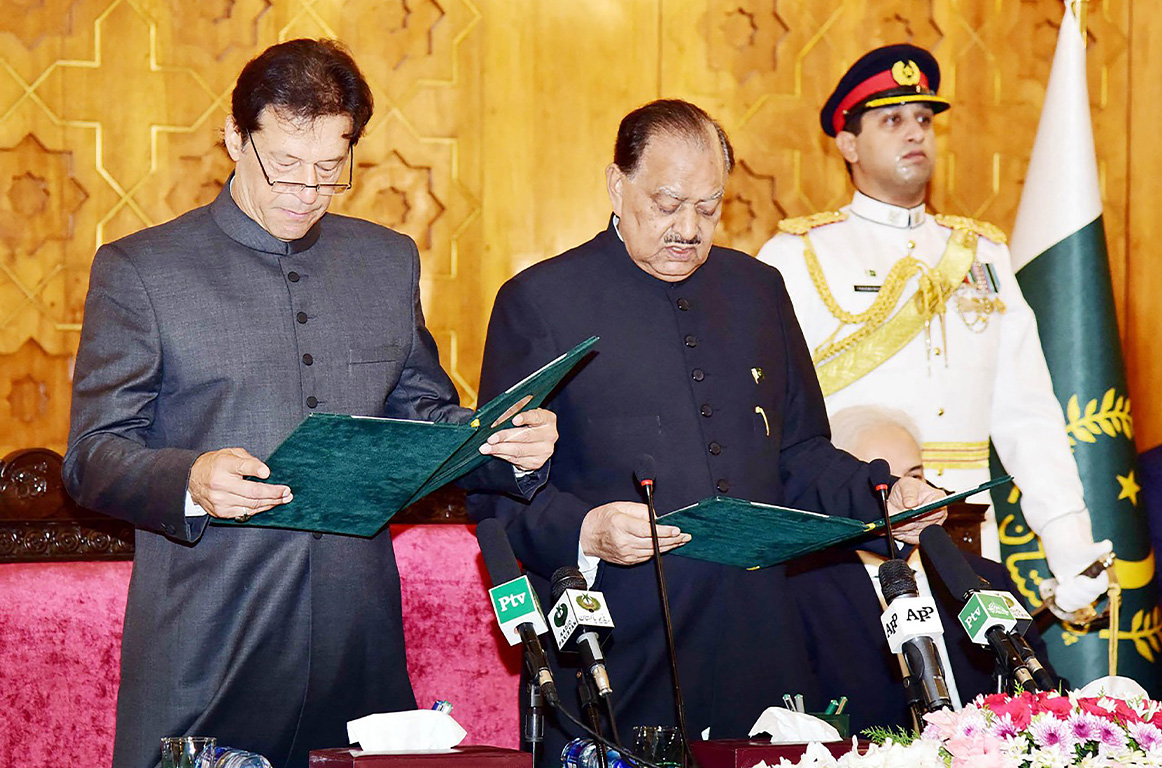
In this file photo President of Pakistan Mamnoon Hussain (C) takes an oath from newly appointed Prime Minister Imran Khan (L) during a ceremony in Islamabad on August 18, 2018. (AFP/FILE)
The PTI won a plurality of seats in the National Assembly, allowing Khan to seek a coalition with independent members of the parliament. He became prime minister on August 18, 2018.
As prime minister, Khan faced a mounting balance-of-payments crisis, forcing him to seek foreign aid from “friendly countries,” which he later received in the form of loans and investment from China, Saudi Arabia, and the United Arab Emirates.
The COVID-19 pandemic aggravated Pakistan’s economic woes and Khan lost public support over rocketing inflation and foreign debt.
2020: Joint opposition against Khan
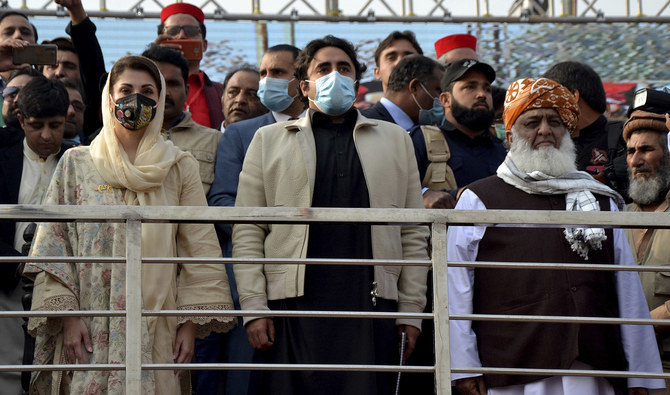
Maulana Fazal-ur-Rehman (R), Bilawal Bhutto Zardari (C), Maryam Nawaz Sharif (L) leaders of the Pakistan Democratic Movement, an alliance of opposition parties, attend a rally in Peshawar on Nov. 22, 2020. (AFP/File)
In late 2020, the major opposition parties formed a coalition, the People’s Democratic Movement (PDM), saying their aims was to increase the independence of civilian government from the military establishment. During protests and rallies, PDM members accused Khan of being a puppet of the army, mismanaging the economy, and called on him to step down.
2021: Drift with military
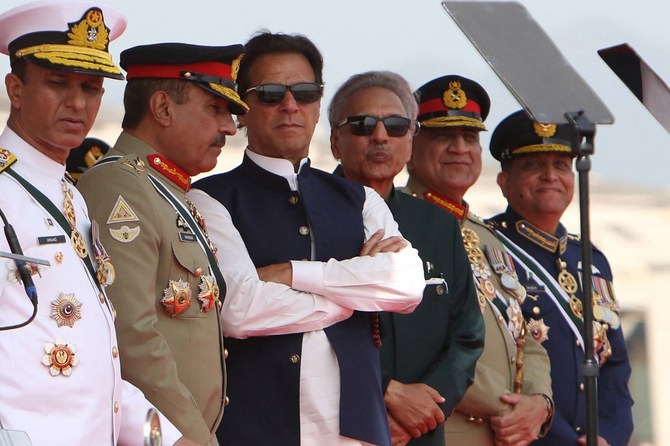
Pakistan’s Prime Minister Imran Khan, center left, and President Arif Alvi, center right, watch air force fighter jets perform during the Pakistan Day parade in Islamabad on March 23, 2022. (AFP)
Khan fell out with the military establishment in late 2021 after a failed attempt by him to influence its top posts.
2022: No-confidence motion
As frustrations rose over sustained inflation, the opposition in March put forward a no-confidence motion against Khan.
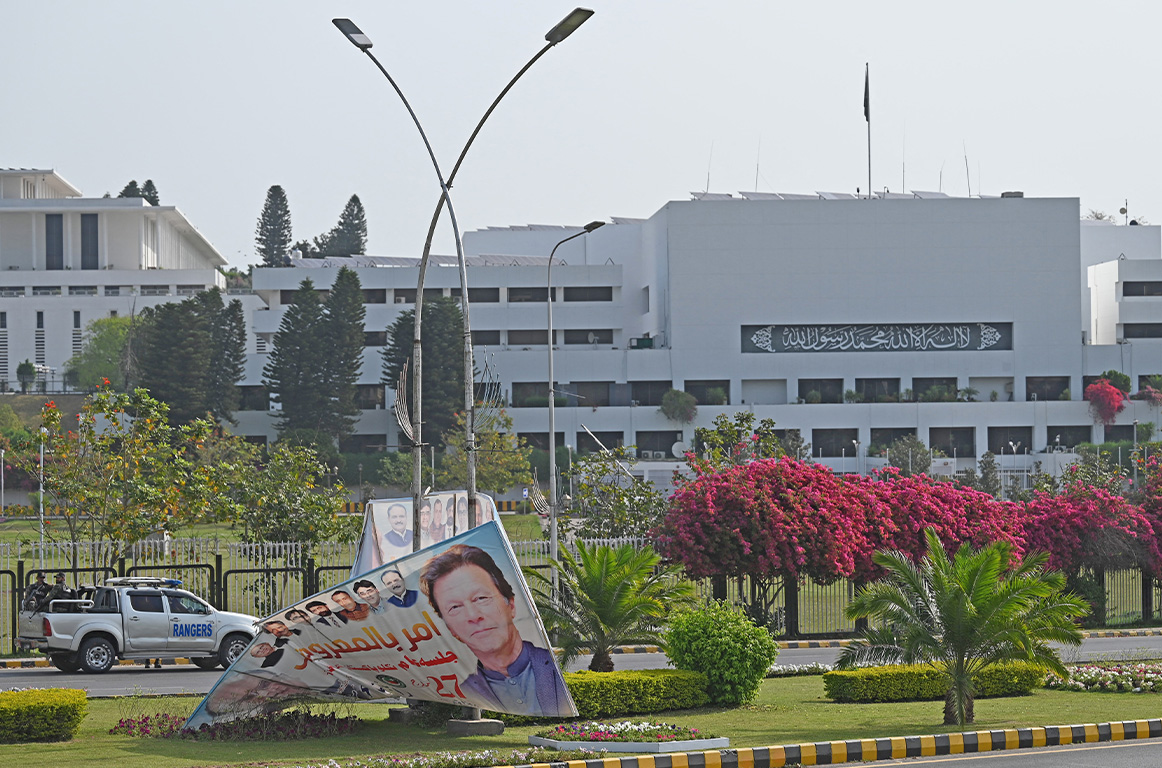
Security personnel patrol in front of the Parliament House building in Islamabad on April 3, 2022. (AFP)
Khan’s ouster would likely mean another round of instability in the nuclear-armed South Asian country of 220 million people, which struggles with double-digit inflation and dwindling foreign reserves.
















